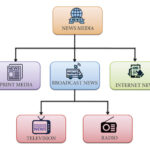
Introduction
News plays a crucial role in our daily lives, keeping us informed about current events, trends, and developments across various fields. In the digital age, news is no longer confined to traditional newspapers and TV broadcasts; it is available instantly through online platforms, social media, and mobile apps. This guide explores the significance of news, key components of journalism, strategies for staying updated, and future trends in news consumption.
Importance of News
Informed Decision-Making: Helps individuals and businesses make well-informed choices.
Awareness of Global Events: Keeps people updated on international and local developments.
Influences Public Opinion: Shapes perspectives on politics, economics, and social issues.
Enhances Critical Thinking: Encourages analysis and evaluation of different viewpoints.
Supports Democracy: Ensures transparency and accountability in governance.
Key Components of News Reporting
1. Journalism Ethics & Standards
Accuracy: Reporting facts without bias or misinformation.
Objectivity: Presenting information in a neutral and fair manner.
Accountability: Journalists take responsibility for their content.
Transparency: Clear sourcing and credibility in reporting.
2. Types of News
Breaking News: Urgent reports on significant events.
Investigative Journalism: In-depth analysis of critical issues.
Political News: Updates on government policies, elections, and governance.
Business & Economy: Financial markets, corporate developments, and economic trends.
Technology News: Innovations, product launches, and digital transformation.
Health & Science: Medical advancements, research, and discoveries.
3. Digital News Platforms
News Websites & Portals: CNN, BBC, The New York Times, etc.
Social Media News: Twitter, Facebook, LinkedIn updates.
News Aggregators: Google News, Flipboard, and Apple News.
Podcasts & Video Journalism: YouTube, Spotify news podcasts.
Strategies for Staying Updated with News
Subscribe to Trusted Sources: Follow reliable news agencies and platforms.
Diversify News Sources: Avoid bias by consuming news from multiple outlets.
Use Fact-Checking Websites: Verify information before sharing.
Engage in Discussions: Join forums and debates to understand different perspectives.
Set News Alerts: Get real-time updates on topics of interest.
Future Trends in News Consumption
AI-Generated News: Machine learning algorithms curating personalized news.
Subscription-Based Models: Paywalls for premium journalism content.
Virtual Reality (VR) News: Immersive storytelling through VR experiences.
Blockchain for News Verification: Ensuring transparency and authenticity.
Interactive News Experiences: Engaging users through quizzes and live interactions.
Conclusion
Staying informed is essential in today’s fast-paced world. By accessing credible sources, leveraging digital tools, and practicing critical thinking, individuals can navigate the vast landscape of news effectively. Whether you prefer reading, watching, or listening, staying updated empowers you to make knowledgeable decisions and participate actively in society.











